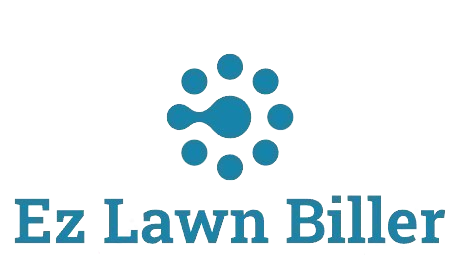Stay compliant and successful in your lawn care business with our essential guide to navigating regulations and best practices.
How to Stay Compliant in Your Lawn Care Business
Maintaining compliance in your lawn care business is not just a legal obligation; it’s also crucial for building trust with your clients and ensuring long-term success. From adhering to local regulations regarding chemical use to understanding labor laws, staying compliant can seem overwhelming. In this post, we will explore essential strategies and practices that will help keep your lawn care business compliant while ensuring you remain efficient and professional.
In the landscaping industry, compliance goes beyond just having the right licenses. It involves understanding the laws and regulations that govern your business operations, ensuring that your employees are well-trained, and utilizing the right tools to manage your operations effectively. This blog post will cover vital compliance areas, offer practical tips, and highlight how software solutions, like Lawn Biller Software, can aid in your mission to stay compliant.
Understanding Local Regulations
Every region has its own set of regulations that govern lawn care services. These laws may pertain to pesticide application, waste disposal, and water usage restrictions. For instance, many municipalities require specific licenses for pesticide applications. Not being compliant can lead to hefty fines and even the suspension of your business license.
To navigate these regulations, start by conducting thorough research on your local laws. Websites of local government agencies often provide resources and guidance. Additionally, consider joining local industry associations that can keep you informed about regulatory changes and best practices. For example, many states have cooperative extension services that offer workshops and resources for lawn care businesses.
When it comes to chemical treatments, familiarize yourself with the Environmental Protection Agency (EPA) guidelines and any state-specific legislation. This knowledge is crucial for maintaining safety standards and ensuring the well-being of your clients and the environment.
Proper Training and Certification
Investing in proper training for your employees is a fundamental aspect of compliance in the lawn care business. Ensuring that your staff understands safe practices related to chemical handling, equipment operation, and customer interaction can significantly reduce risks.
Consider enrolling your employees in certification programs related to pesticide application or landscape maintenance. Many industry associations and community colleges offer training sessions that not only enhance knowledge but also lend credibility to your business.
Additionally, creating a company handbook that outlines safety protocols, regulations, and best practices can serve as a valuable resource for new and existing employees. Regular training sessions and refreshers can also keep your team updated on any changes in compliance requirements.
Documentation and Record-Keeping
Keeping accurate records is crucial for compliance. This includes maintaining documentation of pesticide usage, employee training, and client interactions. Not only does this protect your business in case of inspections, but it also helps in tracking your operational efficiency.
Utilizing a lawn service software like Lawn Biller Software can streamline your record-keeping process. With features that allow you to log services performed, track chemicals used, and manage customer data, your business can maintain compliance effortlessly. Automating these processes reduces the risk of human error and helps ensure that your records are always up-to-date.
In addition to regulatory documentation, keeping track of invoices and billing is essential. Accurate billing practices not only enhance customer satisfaction but also help in maintaining a clear financial record, which is vital for compliance during audits.
Regular Audits and Assessments
Conducting regular audits of your business practices can help identify areas where compliance may be lacking. These assessments should cover everything from employee training to chemical storage and usage records. Regularly reviewing your operations ensures that you are not only compliant but also operating efficiently.
Consider bringing in a third-party expert to conduct audits. These professionals can offer insights into compliance gaps that you might overlook. Furthermore, they can provide recommendations for improvement, ensuring that your business remains compliant with all relevant regulations.
Audits also serve as a platform for fostering a culture of compliance within your team. When employees see that the company is committed to adhering to regulations, they are more likely to take compliance seriously themselves.
Embracing Technology
In today’s digital age, technology plays a crucial role in ensuring compliance in the lawn care industry. Leveraging software solutions can help streamline operations, improve record-keeping, and facilitate effective communication with clients and regulatory bodies.
For example, a lawn service app can help schedule jobs, track service histories, and manage employee tasks, all while maintaining compliance with local regulations. By utilizing a comprehensive platform such as Lawn Biller Software, lawn care businesses can automate invoicing, reducing the likelihood of billing errors that could lead to compliance issues.
Furthermore, using a mobile app can enhance communication with clients, allowing for instant notifications regarding service updates or compliance-related information. This transparency builds trust and ensures that clients are informed about the services being provided.
Staying Informed on Industry Changes
Regulations around lawn care can change frequently, especially with increased focus on environmental sustainability. Staying informed about these changes is essential for ongoing compliance. Subscribe to industry newsletters, join relevant associations, and participate in webinars to keep your knowledge up-to-date.
Networking with other lawn care professionals can also provide insights into best practices and compliance strategies. Joining local business groups or online forums can facilitate sharing experiences and gathering useful information.
Being proactive in your approach to compliance will position your lawn care business as a responsible and trustworthy service provider in your community. As regulations change, being ahead of the curve can also give you a competitive advantage.
Client Communication and Education
Informing your clients about your compliance practices can enhance their confidence in your services. Regular communication about the safety measures you take, the training your staff undergoes, and your adherence to regulations can set you apart from competitors.
Consider providing educational resources to your clients, such as newsletters or blog posts discussing best practices in lawn care and the importance of compliance. Having an informed customer base not only helps in building trust but may also encourage them to refer you to others.
Your compliance practices should also extend to marketing materials. Always ensure that claims made in your advertisements and promotions accurately reflect your services and comply with advertising regulations. This is crucial for maintaining your credibility and avoiding potential legal issues.
Conclusion
Staying compliant in your lawn care business is essential for protecting your reputation, ensuring client trust, and maintaining operational efficiency. By understanding local regulations, investing in training, maintaining thorough documentation, and embracing technology, your business can navigate compliance challenges effectively.
Additionally, fostering a culture of compliance through regular audits and staying informed about industry changes will further solidify your business’s standing in the community. As you strive for compliance, consider leveraging tools like Lawn Biller Software to streamline your operations and reduce the administrative burden.
Ultimately, the goal is to run a successful lawn care business that adheres to all regulations while providing exceptional service to your clients. By prioritizing compliance, you not only protect your business but also contribute positively to your industry’s growth and reputation.




